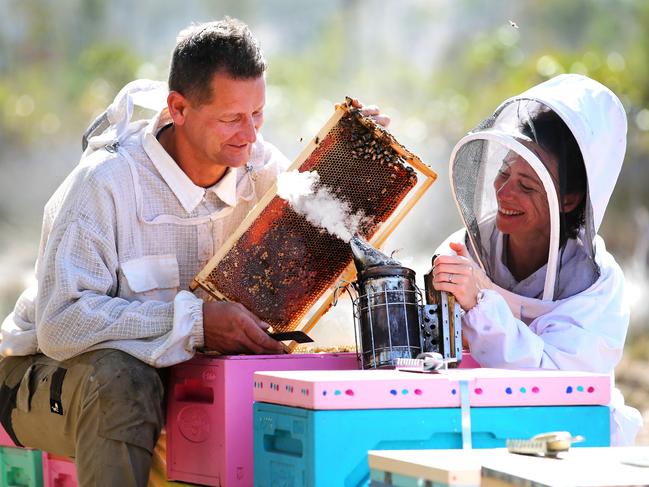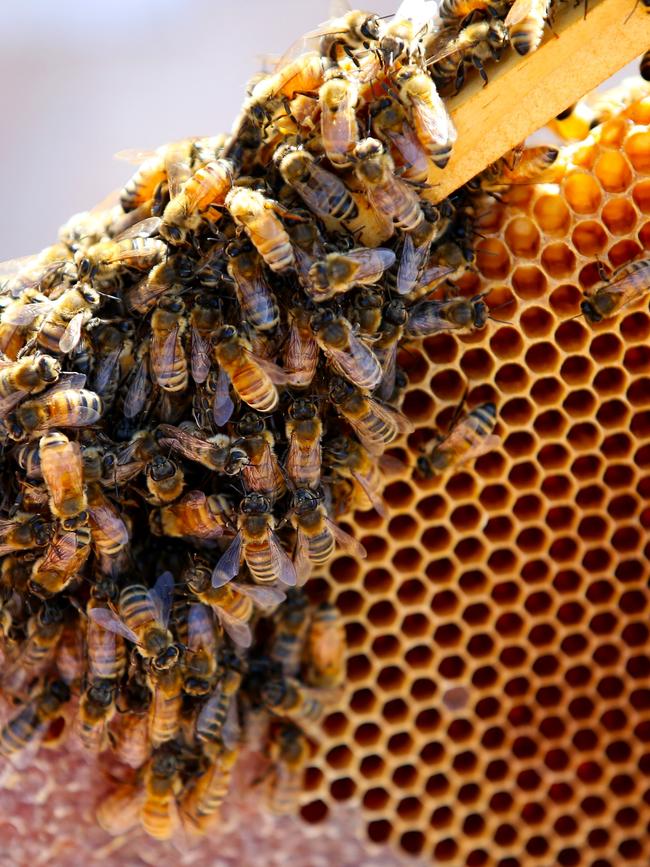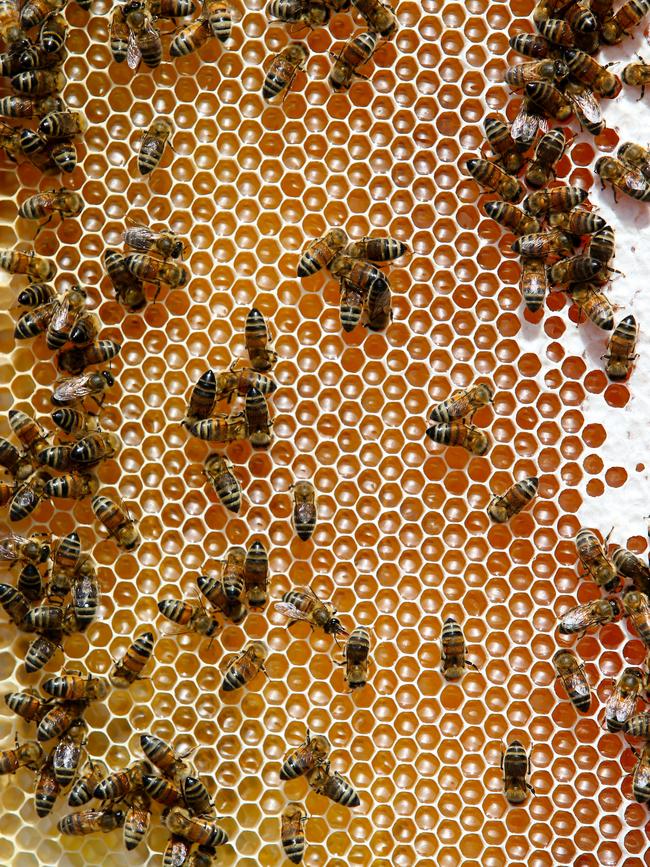NSW drought forces beekeepers to relocate hives to keep bees alive drying up honey production
Honey production in NSW has been cut by 70 per cent because the state’s beekeepers are being forced to relocate so their bees will survive the drought which is drying up nectar on trees and flowers.
NSW
Don't miss out on the headlines from NSW. Followed categories will be added to My News.
Beekeepers are being forced to relocate so their bees will survive the drought which has cut honey production by 70 per cent in NSW.
Much like other producers across the state bee farms have been forced to change their ways as the drought dries up nectar on trees and flowers.
Sven Stephan, 54, and his wife Ana Martin, 47, run Amber Drop Honey, near Johns River on NSW’s mid north coast, but have had to transport their hives 200km north to Coffs Harbour to keep them producing.
“Because of the drought nothing is flowering, there has only been tiny amounts of rain near us which means there is no nectar for the bees,” he told The Daily Telegraph. “It has not been good the past two years, but this year was really, really bad.
“I moved about 300 hives to Coffs Harbour, chasing the rain. In a good year we would produce anywhere between 50kg and 80kg of honey per hive. In a bad year it is around 5kg to 10kg per hive.”

RELATED NEWS
Miranda Devine: Greta isn’t inspiring. She is a victim of child abuse
Rob Stokes star speaker at climate emergency conference
More native animals left orphaned due to drought, bushfires
Water Minister defends attack on Murray-Darling plan report
The NSW Apiarists Association estimates honey production is down between 50 and 70 per cent for most producers in 2019.
However, supermarket prices are not expected to rise substantially because of pre-planning by beekeepers.
Producers left stores of honey in their hives this year to help supplement bee numbers as the bee larvae feed off the product.


But NSWAA executive councillor Brian Woolfe is worried those stores will dry up if there is no rain soon.
“It is not like with other farmers who may see benefits straight away when the drought ends. We have to factor in time for the trees and plants to flower,” he said.
“With the eucalypt species, if it rained now you might not see the effects for 18 months to two years. Some trees may respond earlier, around a year, but I would say for most of them it would be much longer than that.”
Beekeepers depend on native flora for about 80 per cent of production. Producers are earning around $4.50 to $4.60 per kilo while customers can buy the same amount for around $12.
